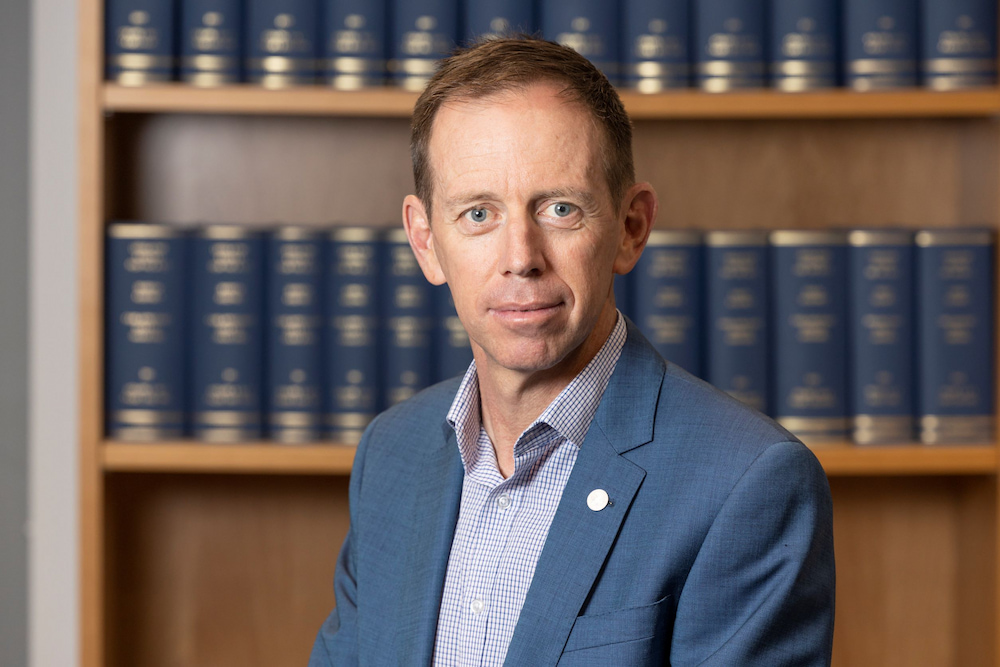Asked on Tuesday about Education Directorate head Katy Haire’s legal proceedings against the Integrity Commissioner, Yvette Berry, Deputy Chief Minister and Minister for Education, stated: “I have no knowledge of the matter and the government has no knowledge of the matter,” the ABC reported.
“For Ms Berry to come out and so emphatically deny all knowledge on behalf of the ACT government when that is clearly not the case is worrying,” Canberra Liberals Leader Elizabeth Lee said today.
Attorney-General Shane Rattenbury, however, said: “I believe the Education Minister would not have known anything about it… I imagine Ms Berry would not have been aware of the government’s involvement.”
In September, Mr Rattenbury stated, the Supreme Court had invited him to intervene on behalf of the ACT Government as a legal adviser to the court, to provide legal information, and not as a party to the litigation. He was served papers on 4 September, sought advice from the Solicitor-General, and decided on behalf of the government not to intervene in the matter.
“There was no particular rôle for the ACT Government, the ACT Integrity Commission was quite capable itself of running the matter, and making the points that needed to be made,” Mr Rattenbury said. “There was no need for the ACT Government to add further information.”
Mr Rattenbury communicated that decision to the Supreme Court on 7 September, as well as to Chief Minister Andrew Barr. He did not tell Ms Berry; since she was involved in the matter, “subject to the process in the Integrity Commission”, he deemed it inappropriate to communicate that information to her. He said he did not know whether the Chief Minister had told her.
“The ACT Government’s had no further involvement in this litigation – in fact, none at all,” Mr Rattenbury said.
Ms Lee, however, questioned the Chief Minister’s confidence in Ms Berry, and questioned what other information had been withheld from her.
“Something appears very wrong with this Labor-Greens government when two senior members are aware of a serious court case between the head of the Education Directorate and the Integrity Commissioner, but fail to alert the relevant Minister,” Ms Lee said.
“The Chief Minister must also decide whether he continues to have confidence in Ms Berry. The Attorney-General says he cannot disclose something as important as this to her because she is actively participating in the Integrity Commission investigation.
“What else has the Chief Minister and the Attorney-General kept from Ms Berry? How does the Chief Minister have any faith in his Deputy who at times is Acting Chief Minister if he must keep something as serious as this from her?”
Ms Haire’s court costs
The ACT Government has agreed to assist Ms Haire with her legal costs; from that, Ms Lee deduces that the government must have known before September.
“The Chief Minister must come out and tell the public why Canberra taxpayers are footing the legal costs of these proceedings, and by agreeing to cover the fees, that he endorses a court action seeking to shut down a serious corruption investigation,” Ms Lee said.
“The government,” Mr Rattenbury said, “does have a standing Legal Services Direction that public servants and public officials in the ACT will receive legal support from the ACT Government, where they are in court or before a commission as a result of matters undertaken in the course of their employment. This is a long-standing position of the ACT Government; it covers public servants across the board and also covers members of the Legislative Assembly.”
Public employees who are the subject of legal claims or inquiries arising out of the course of the performance of their duties are entitled to seek assistance in relation to their legal representation pursuant to the Law Officers Legal Services Directions 2023.
The Directions state: “A public employee acting in the ordinary course of his or her employment in good faith will generally be indemnified by the Territory in respect of any liability to third parties arising from … legal, investigation or disciplinary proceedings, or proceedings associated with an employee’s professional obligations or qualifications, in which the actions or omissions of that employee are under scrutiny.”
Ms Lee, however, said that the Directions made it clear that the provision of ‘assistance’ with legal fees was for defending any proceedings arising out of action within the scope of their employment, not for commencing them. Assistance is not provided if a public servant is “defending professional or personal disciplinary investigation or action”, and that any provision of legal assistance may be rejected or withdrawn if the ACT government is not given notice of legal proceedings.
The Directions state that the Territory will generally not provide assistance to a public employee in relation to a personal interest, such as pursuing a defamation claim; defending professional or personal disciplinary investigation or action, whether by the Territory or another person or body; or a complaint, application, action, proceeding or any other similar process by the employee against the Territory, a Minister, a Member or another public employee.
Mr Rattenbury, however, said that Ms Haire was “not initiating an action, in the sense that it is part of this discussion of the process of how the Integrity Commission conducted an investigation. The particular objection she was taking, based the papers we received, was that the Integrity Commission had formed a view that she would no be able to cross-examine a particular witness… It’s quite different to initiating a defamation case against somebody … This is very much within the conduct of the proceedings that were underway.”



